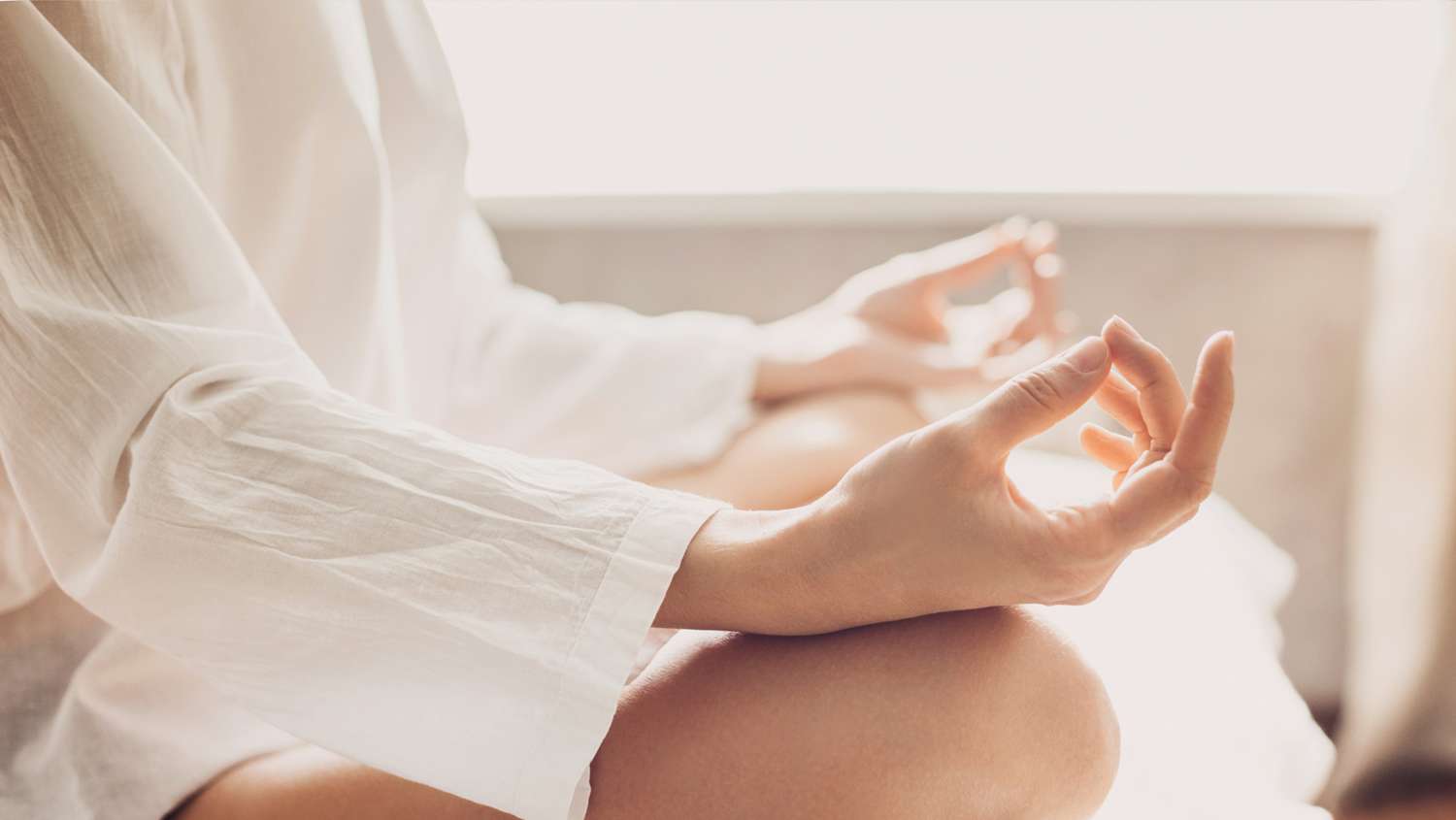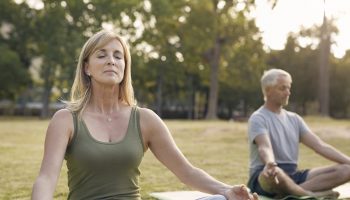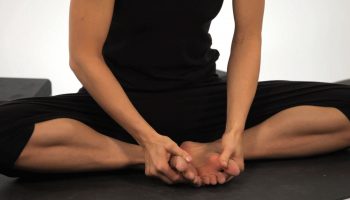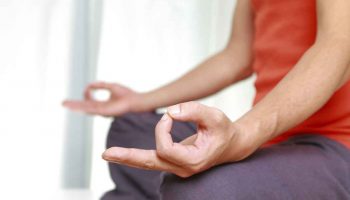According to a recent Huffington Post survey, sleep deprivation is a major source of stress among U.S. adults.
Whether you’re a night owl with early bird aspirations, a troubled sleeper, or just in need of a little help relaxing before bedtime, some gentle yoga before you tuck in can help. This in-bed routine (really, you can do these moves in your bed) will put your body and mind to rest, helping you sleep soundly through the night to wake up rested and refreshed in the morning. No pills required.
That’s where yoga comes in. By lowering stress levels, calming the mind and relieving tension in the body, the soothing practice can be an effective natural sleep remedy. Certain resting and inversion poses can be particularly helpful for combatting restlessness and insomnia, especially when practiced in the evening or in bed before hitting the hay.
“We live in such a fast-paced environment and our senses are always being stimulated, and that affects our nervous system,” says Vyda Bielkus, a yoga teacher and trainer and founder of Health Yoga Life. “The yogic technique of focusing on your breath can be helpful — the exhalation stimulates the nervous system to release … [and] the poses also help us relieve tension from the physical body.”
Insomnia may be common, but if left untreated its health consequences can be anything but benign. Chronic insomnia is associated with a number of serious medical conditions.
Insomnia is associated with high blood pressure and other cardiovascular problems. This large-scale study found that people with insomnia had significantly elevated risk of heart attack. Insomnia is also associated with inflammation in the body, which is itself a risk factor for heart problems and other serious illnesses.
Research indicates that lack of sleep can have negative effects on cognition, and the brain. This study linked insomnia with destruction of gray matter in the brain. This group of four studies, conducted independently of one another, found evidence that poor and fragmented sleep may contribute to impaired cognition as we age.
Insomnia has been found linked to both anxiety and depression. The relationship between sleeplessness and these mental health disorders is still being understood, including whether one condition precipitates the other. But insomnia, depression and anxiety share a deep and difficult connection.
Lack of sleep, and disrupted sleep, is also associated with obesity. We’ve seen extensive research that shows under-sleeping is linked to weight gain and the diseases associated with obesity.
Contents
Short Meditation
First things first: Get ready for bed. Put your pajamas on. Turn off the lights—and the TV and computer. Put down your book and get comfortable. Sit in a cross-legged seated position in bed. Then lean back slightly onto your pillows or headboard.
Seated Twist
Still in your cross-legged seated position, inhale and sit up tall. Then exhale as you twist your torso to the left. If you have a headboard, you can grab onto that for some gentle leverage in your twist.
Cross-Legged Bend
Still in your cross-legged seated position, gently bend forward from your hips and reach your hands straight out in front of you on the bed. Stay here for a few deep breaths, feeling the stretch in your hips and back.
Seated Forward Bend
Slowly extend your legs out in front of you, keeping your knees slightly bent. Inhale and sit up tall. Then exhale and reach for your feet. Bend your knees as much as necessary to keep your back flat.
Knees-to-Chest Pose
Slowly roll down to lie on your back and rest your head on your pillow. Hug one knee into your chest, grabbing your shin to pull it closer to you. Stay here for a few deep breaths.
Reclining Big-Toe Hold
Inhale and extend right leg straight up to the ceiling, grabbing hold wherever you can comfortably reach (behind your knee, closer to your ankle, or your big toe if you’re very flexible).





